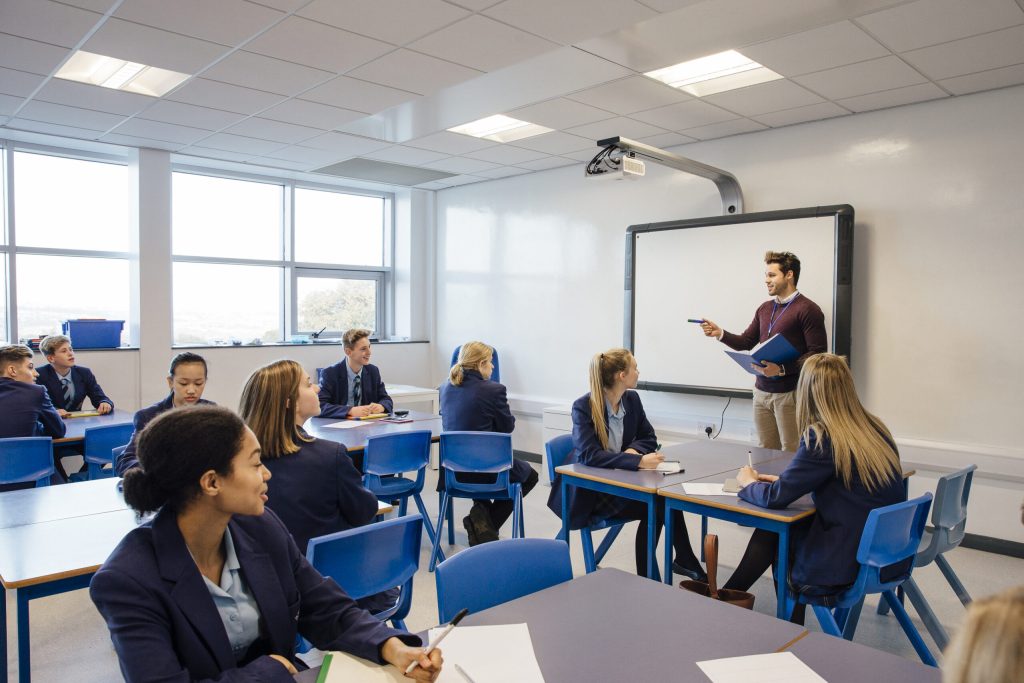Reducing the spread of Strep A in schools
01 August 2022 Category: Nviro News
Over the last few days, Public Health officials issued guidance about how to treat Strep A in schools following the tragic death of several young children. Although Strep A is often harmless it is highly infectious and it can be caught through close contact and from coughs and sneezes. Most often, symptoms are mild – a sore throat or a skin infection that can be easily treated with antibiotics. Strep A can cause a range of things, some of which are more serious.
Currently, Strep A has been circulating among children since September and is thought to be having more impact as a result of higher levels of circulating bacteria and low levels of immunity following the Covid-19 pandemic.
School leaders and parents will be understandably very concerned about the impact an outbreak may have and so they need to act quickly.
School leaders will be looking to implement a cleaning and hygiene solution that keeps children safe from the spread of Strep A and reassures parents, but there are a few things to consider.
Can you use domestic products like bleach to kill Strep A?
Some staff in school may think damp wiping with bleach, as the strongest accessible disinfectant, is an option. However, the use of bleach is strongly advised against in the school setting and isn’t considered a sensible or long-term approach as it can result in health hazards as well as cause damage to the fabric of the school. Bleach is also highly damaging to the environment and the volumes of products required in schools could prove dangerous. Mixing bleach with other higher-grade antibacterial chemicals is also risky among both the cleaners implementing a bleach clean and among building users. Because people regularly use it at home and feel familiar with the chemicals, safetessioy precautions are not usually in place, and PPE is minimal.
So, what should I use?
Reputable professional cleaning companies will be looking at NHS protocols and what they do to deliver a clinical-level clean to prevent the spread. In line with the management of Covid-19, additional touchpoint cleaning should be considered along with a deep clean with a disinfectant.
Nviro’s core cleaning product OdorBac is effective against Strep A at its standard dilution of 1:10, but unlike many other products it has no hazards phases, so is ideal to be used in educational settings and once cleaned the area can be used immediately without the need for additional PPE or ventilation of the area.
Protective Coatings – a useful option?
Trialled in other industries, many schools are looking to harness the power of protective coatings to prevent germs from spreading and in turn reduce sickness absence among both students and teachers.
These coatings cover surfaces with an antimicrobial formula that kills things like the common cold and flu bacteria on contact. One coating is highly effective for 60 days and can help schools to control infection, reducing the need for more frequent deep cleans keeping costs down as well as protecting surfaces
These coatings can provide a high level of reassurance to parents and teachers and can be sprayed, using an electrostatic gun, in an evening or weekend, following a normal, deep clean or decontamination clean.
At Nviro we also provide a range of communication tools to explain the value of protective coatings to parents to reassure them that their children can feel safe attending school.
What should your school be doing right now?
As the bacteria that spreads Strep A is airborne, schools are currently being advised to:
- Encourage hand hygiene – washing hands regularly for at least 20 seconds with soap.
- Food preparation areas should be thoroughly cleaned with appropriate chemicals/disinfectant.
- Touchpoint cleaning with disinfectant should be re-introduced in affected schools to stop the spread of bacteria.
- Any children showing symptoms should be sent home as soon as possible to avoid cross-contamination and should not return until 24 hours after antibiotics are started.
However, further steps could be worth consideration:
- Schools that are experiencing high levels of colds and flu may want to reintroduce masks to prevent airborne transmission of the bacteria.
- Talk to your cleaning company about decontamination or deep cleaning using commercial-grade chemicals.
- Consider the value of a protective coating after a deep clean for use as a preventative and reassuring tool.
Strep A: What to look for?
Strep A can cause something called ‘invasive group A streptococcal infection’ or iGAS. This is the form that can prove deadly. It happens when the bacteria pass through the body’s immune defences. This is more likely to happen if immunity is low through illness or some medical therapies, that affect the immune system.
More information is on the Gov.uk website or can be found through the NHS.
Urgent, early medical help is essential, and the UK Health Security Agency advises: “Anyone with high fever, severe muscle aches, pain in one area of the body, and unexplained vomiting or diarrhoea should call NHS 111 and seek medical help immediately.”
For more information, contact Antony Duggan at Nviro:
aduggan@nviro.co.uk | 07807 128707


